De Creatieve STEM, guided by M. Cristina Ciocci, member of the Executive Board of EASE and partner Digijeunes have been awarded the first price for Meet and Code 2020 in the category “Code for Europe”. It is a very important achievement, considering that it was considered as the most relevant project with regard to the concepts of technology and Europe.
We are going to ask some questions, important to know better the work that she is developing.
1. What did your project consist of? In this case, it was a project in which more than one organization took part, right?
When we learnt about the opportunity to participate in Meet and Code, we engaged in an international collaboration with our French partner Digijeunes. We are working together on an Erasmus+ Youth project GirlsInSTEM.eu developing STEAM toolkits for educators aiming at engaging and empowering more girls in tech.
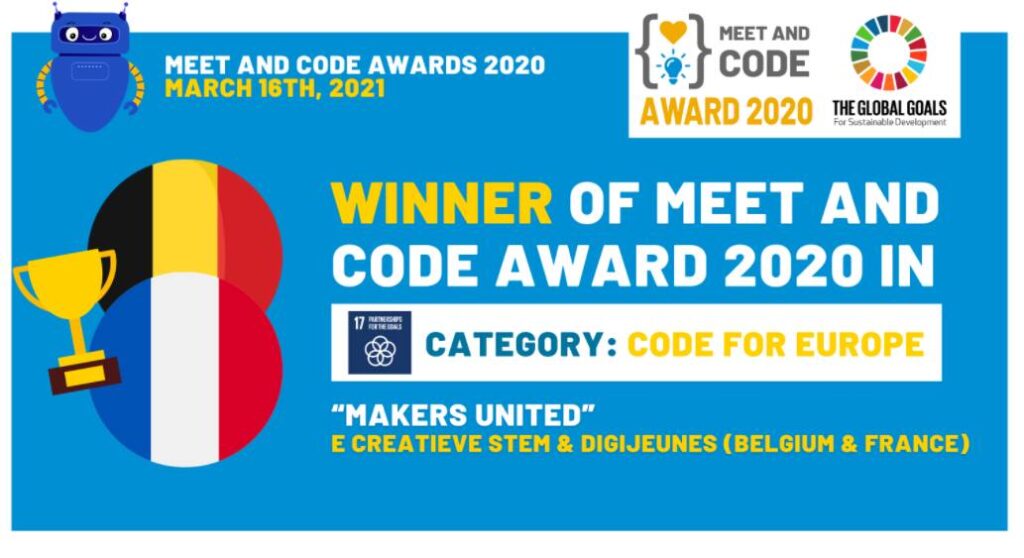
For the initiative meet and code we chose to gather groups of Belgian and French kids around a meaningful project : the objective was to introduce more than 10 kids to electronic prototyping so that over three afternoons of online workshops, they could build their own (working) electronic interactive device to counter a COVID related problem of their choice.
The belgian kids chose to work on a way to control social distancing via an intelligent mouth mask and the french kids worked on a smart hands free soap dispenser to help minimize the chances of the infection.
2. What kind of work do you develop at De Creatieve Stem? What are you doing over there?
I’m one of the founders of the organisation and am working as project manager.
The association has the educational objective of promoting the development of the individual with all her / his talents, the goal is to create a framework within which a person can develop talents in technology and science and to offer access to tools that people do not have at home, like for example a lasercutter and also to lesser-known materials and techniques. We focus on digital fabrication and physical computing. We organize STE(A)M afternoon programs, training of trainers, training for makers etc.
We always focus on prototyping principles and promote what we call the maker mindset for all.
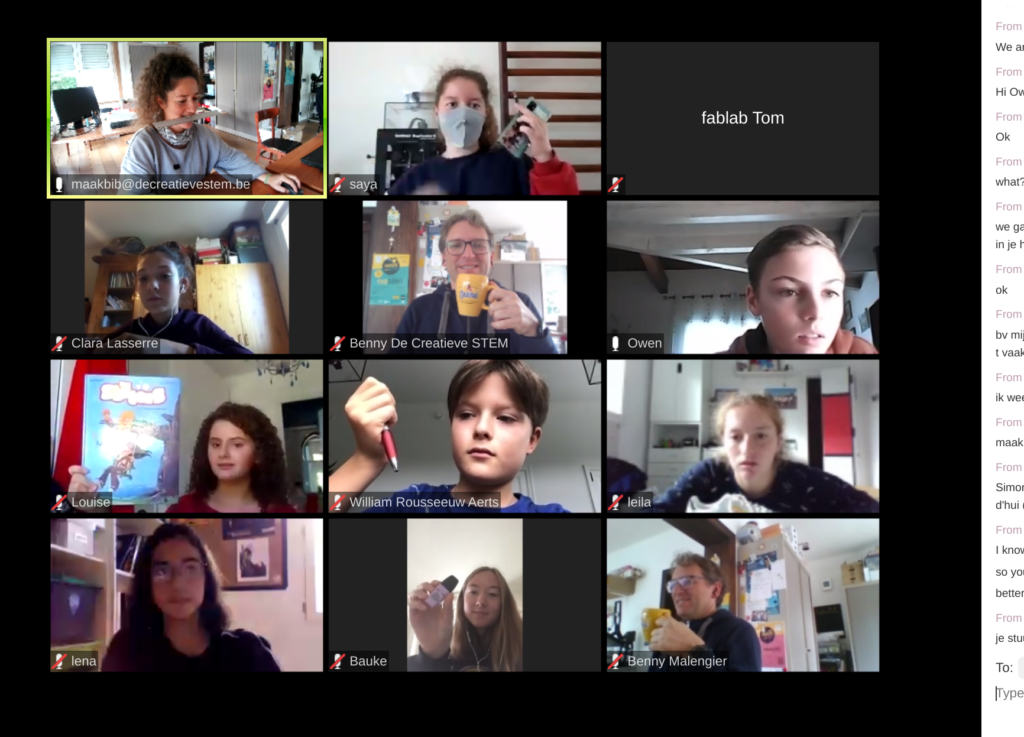
3. Who uses your MakerSpace?
Everyone. Really, everyone. Children come to repair and make things, as do adults. We are a ‘small’ independant lab, with no direct funding for the lab. The advantage of this is that we are completely free to organise and exploit it as we believe benefits the community best. As a non-profit, that means a lot of free use of the machines also, which really, everyone, appreciates!
4. In your opinion, what should a space offer to be considered as a MakerSpace?
To be a maker space you surely need two things: a space and (inspiring) people with the right attitude.
You see, a lab with the finest equipment is just a space with tools. To be a maker space you need people who embrace the maker beliefs and act by them. For me sharing knowledge and open source are a way of life.
Everybody should at least read the Maker manifesto by M.Hatch and the Maker bill of rights by G.Hertz, edition of 2018 and the FabLab charter.
If we want to encourage more young people to explore, create, discover, and make their own way, it is not enough to acquire tools and materials. To create innovative thinkers is a timely endeavour which needs support by passionate and visionary experts.
So, first you get the people, you start to play around and then you tool up. The king of the tools in the lab is usually the laser cutter, also my favourite digital fabrication tool.
But if you start thinking about the equipment it is good to keep in mind that common tools like screwdrivers or power tools are very useful. And of course you’ll need duck tape!
5. What kind of projects promoted by your organization are of the highest interest to users on your MakerSpace?
Three main things: our activities for children, FabZero and the openlabs.
Our maker clubs for children and maker holiday camps are very popular. We do lots of prototyping with kids with the real adult stuff and tools, so they love it! We are specialists in what we call product design and development with kids and we are active all over Flanders, often hired by third parties.
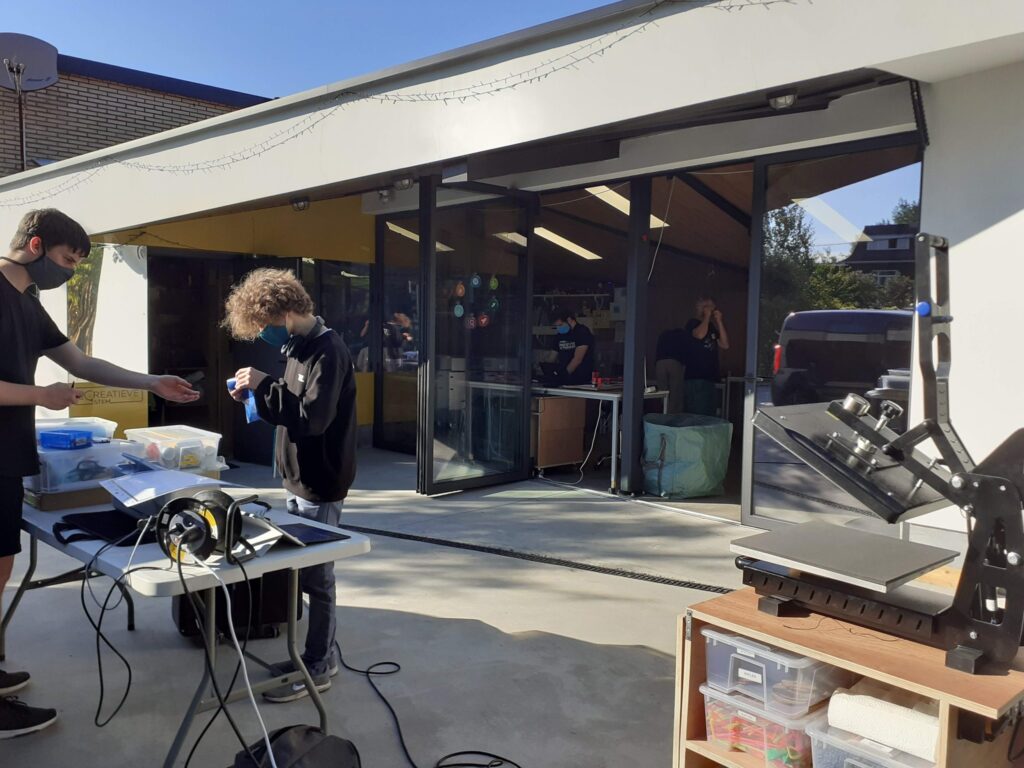
But since last year we are investing lots of energy also in informal but high level training for makers older than 16 year old, through a program called FabZero: inclusive KET’s, sponsored by the Digital Belgian Skills Fund (DBSF), see FabZero.eu. It is an intensive training program, originally designed to fill knowledge gaps in digital fabrication and prototyping, aimed to prepare students to succeed and improve their chances and experience during the international Fab Academy. But it has grown into a multidisciplinary program, where a customized learning path is designed and crafted to the specific needs of the group. It is a fast paced program over 15 weeks, covering a different topic each week. It is based on the basic principle : learn + make + share. There are weekly classes by experts, given live in the lab and/or by videoconferencing. Participants undertake their own research and trials to complete the assignments. In the weekly open labs they work hands-on with assistance of the local instructors to complete assignments or own projects.
The openlabs are just that, times when the lab is open, and the machines are free to use. It is part of the Fab Charter, but many labs don’t offer it. We started with openlabs before the FabZero project, but with the project we could upscale it to different locations by supporting other locations to be open (for free) and hence, inclusive.
6. STEM or STEAM?
Both!
I think STEAM is a better approach at an early age and to engage a broader set of people. Think like a library engaging non-readers. But we need both.
If you really have a STEM invention/solution, then you will need a big dose of A to put it in the market!
7. What do you think about the potential that the activities you promote in your Maker Space can have in a school? Can the experimental approach be related with the contents of the curricular subjects?
The answer to your second question is definitely: yes.
In both traditional education and the world of the maker movement the clue is knowledge and how to construct and keep it. How to learn to learn. So, let’s say the what could be considered the same. But the how is often very different and the makers surf on intrinsic motivation that is often lacking in a traditional setting.
The makers have a good attitude: failure is part of the process and the way to go is tinkering. You try, you fail. You try again, you fail better. And hacking is allowed. If you don’t know something, you ask, you copy, you share …
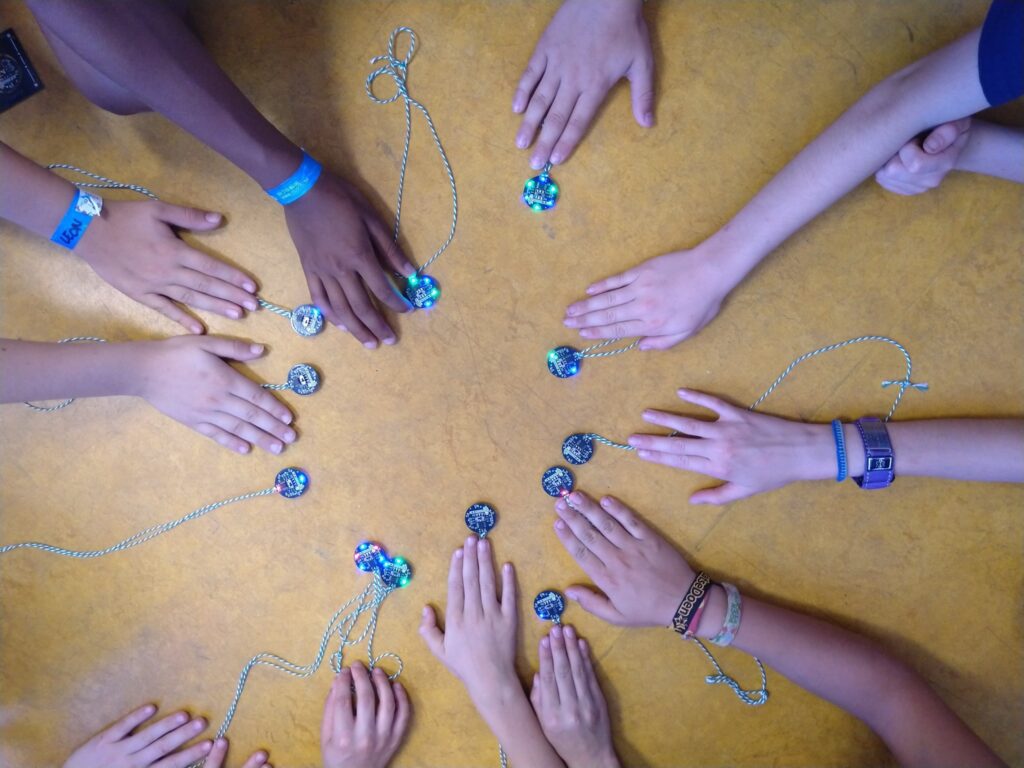
There is not so much space for tinkering with your knowledge in a traditional setting, and too little is done hands-on. It is useful to acquire knowledge through your hands and then step up and go through the thick books with all the details. Often through projects you grasp why it is important to fix the knowledge in your head through lots of (traditional) hard work.
There should be more open mindedness on the traditional side.
8. Do you think that it makes sense to have spaces like these in schools? In other words, is the MakerSpace for Education concept a relevant approach for the education of children and young people?
This quote is etched in my head since 2008: To form a generation that knows only how to hit a keyboard and produce reports is, to me, a scary prospect.
So, yes. We need maker spaces at every corner we can get them. A maker space offers infinite possibilities to grow and to build on your self esteem. It is a place where you can allow chaos.
You can let yourself be interested in the way things work, be intrigued by tech, you can be unafraid to play with new technologies. Tinkering seeds new ideas and inspires exciting projects.
So yes, let’s open up more places where you can make something, anything really. Or take something apart to find out what’s inside. I think that everyone can be an inventor and a designer, you just have to let yourself try.
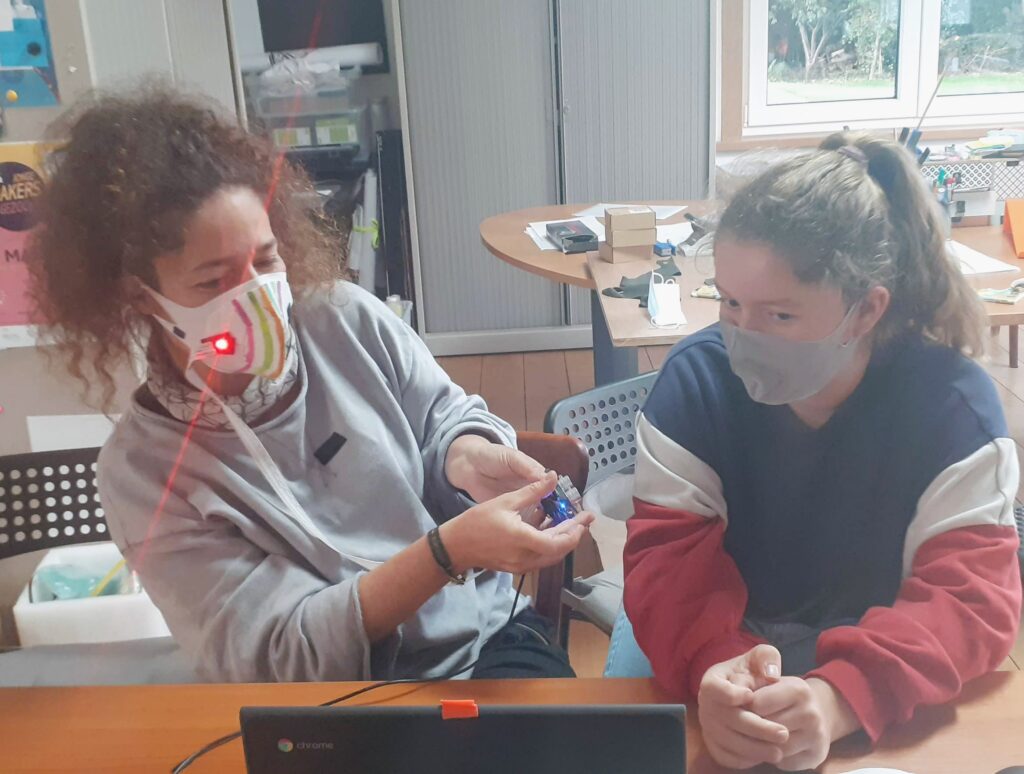
In this regard I’m proud of our MaakBib.be project, sponsored by Vlaio. In this we promote maker spaces in libraries, which is a good way to connect with primary education, as primary schools often don’t have the space or skill set for a maker space, but setting it in a library sponsored by the local community, opens it up for all primary schools in that community, as well as the youth organizations and the citizens, which all can make use of the space in their typical time slots (school hours, library hours and weekends/camps).
9. Regarding EASE, as an European association of STEAM educators, what do you think this organization can do for our work on promoting the STEAM concept?
Provide lots of role models, lead by example, provide easy access to knowledge, tools and material and above all promote the mindset.
In the end, it is all about the mindset. And to change the mindset of politicians requires a united force that can push in the right direction!

